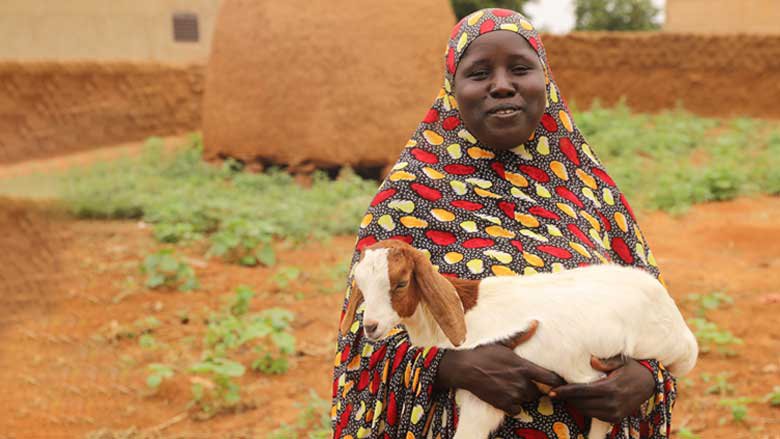- The update on Niger’s 2023 Economic Situation highlights a strong economic recovery in 2022, supported by agriculture and domestic demand. GDP growth in 2022 reached 11.5%, driven mainly by investment and private consumption. The budget deficit, on the other hand, remained high at 6.8% of GDP.
- Thanks, to a 7.7% GDP per capita growth in 2022, which mainly benefited the poorest deciles, extreme poverty fell by 6.4 percentage points.
- The economic outlook for 2023 is positive, with robust growth forecast, thanks in part to oil production. This forecast nevertheless remains dependent on downside risks that include the security situation, delays in oil production and vulnerability to climate change, underlining the need for disaster risk management and adaptation investments.
- The livestock sector, which accounts for 13% of national GDP, is one of Niger's most important economic sectors. Some 4 million people, or 17% of the total population, are said to be livestock breeders. However, this sector is regularly affected by climatic shocks, particularly droughts.
- Despite several risk management and financing initiatives, herders and agro-pastoralists do not always benefit from mechanisms for adapting to climate shocks, making them vulnerable to these shocks.
- Disaster Risk Financing and Insurance (DRFI) could help reduce the adverse socio-economic impacts of climate shocks. This mechanism provides targeted and timely financing in response to or in anticipation of a shock. DRFI approaches include market-based instruments such as insurance schemes, catastrophe bonds and swaps, contingent financing such as credit, and budgetary tools such as a dedicated reserve fund or contingency budget. Niger will be able to adopt one of these DRFI approaches to strengthen the resilience of livestock farmers to climate shocks.

Mina, member of the Tsernaoua community, Tahoua region, Niger
@Mouslim Sidi Mohamed, World Bank
The update on Niger’s 2023 Economic Situation highlights a strong economic recovery in 2022, supported by agriculture and domestic demand. GDP growth in 2022 reached 11.5%, driven mainly by investment and private consumption. The budget deficit, on the other hand, remained high at 6.8% of GDP.